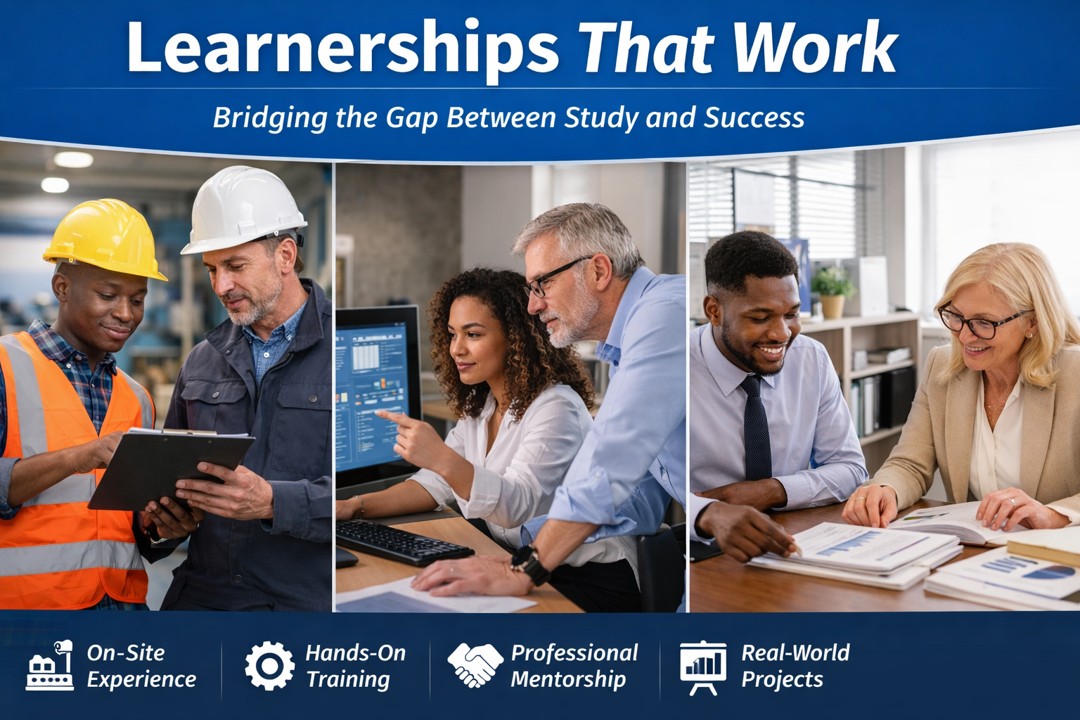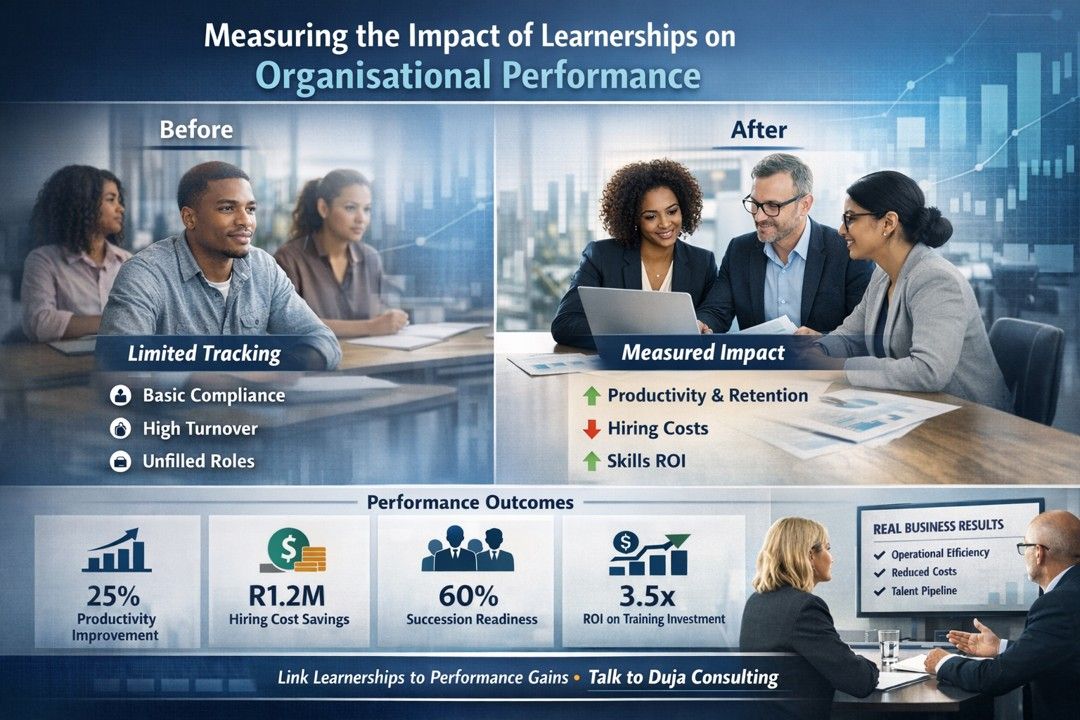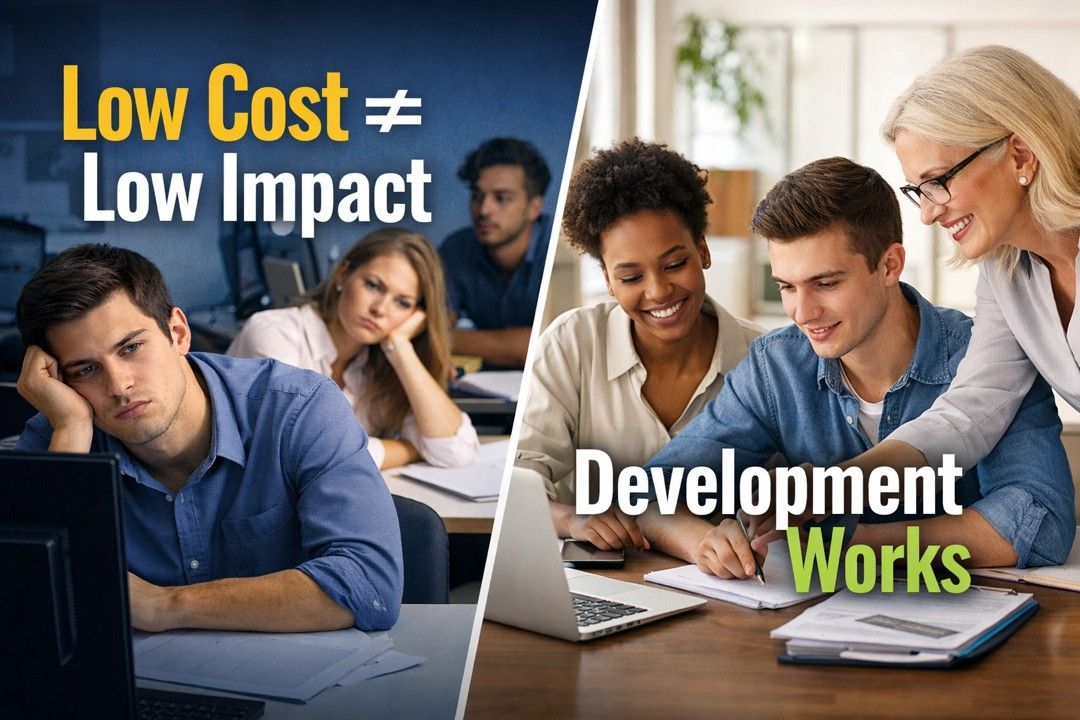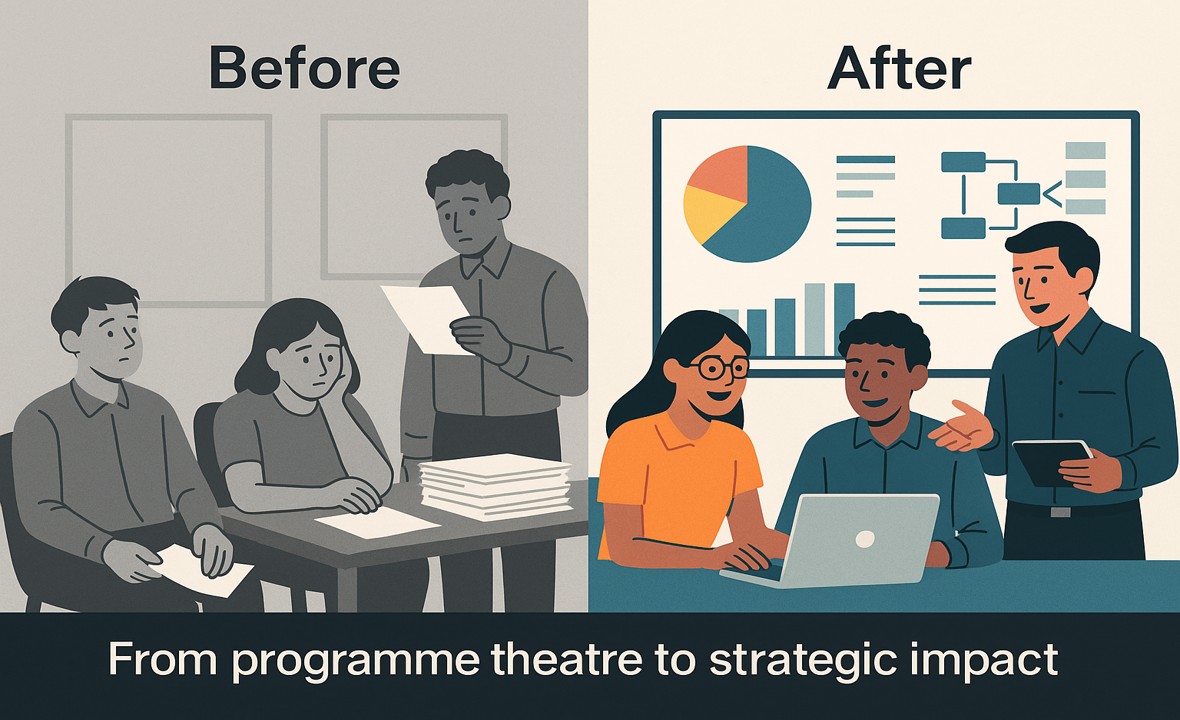Poor graduate programme design causes disengagement and attrition. Learn the 7 common design flaws and a measurable blueprint to build job-ready capability.
Continue Reading

Poor graduate programme design causes disengagement and attrition. Learn the 7 common design flaws and a measurable blueprint to build job-ready capability.
Continue Reading
Why graduates struggle to become work-ready and how organisations can redesign learnerships and graduate programmes to improve productivity and reduce risk.
Continue Reading
Learn how to measure the real business impact of learnerships, linking skills development to productivity, cost reduction and organisational performance.
Continue Reading
If you’d like to explore how structured outsourcing and workforce models can reduce risk while improving productivity, connect with Duja Consulting.
Continue Reading
If your organisation is reviewing or redesigning its learnership approach, Duja Consulting works with clients to design programmes that deliver both compliance and commercial value.
Continue Reading
Balancing mentorship and productivity in internship programmes is not a trade-off. It is a design challenge.
Continue Reading
Many graduate programmes produce capable candidates who still are not job-ready. Learn the common failure points and a practical blueprint to redesign programmes for measurable workplace readiness.
Continue Reading
Learn how to design internships that build workplace-ready talent, reduce hiring risk, and create a sustainable pipeline for critical entry-level roles.
Continue Reading
Track behaviour adoption like revenue. When learning is judged by movement in work, not attendance, the portfolio gets smaller, sharper, and more valuable. People don’t want more courses; they want fewer that work.
Continue Reading
Discover how to design graduate programmes that align with organisational strategy, build real capability, and deliver measurable business impact.
Continue Reading